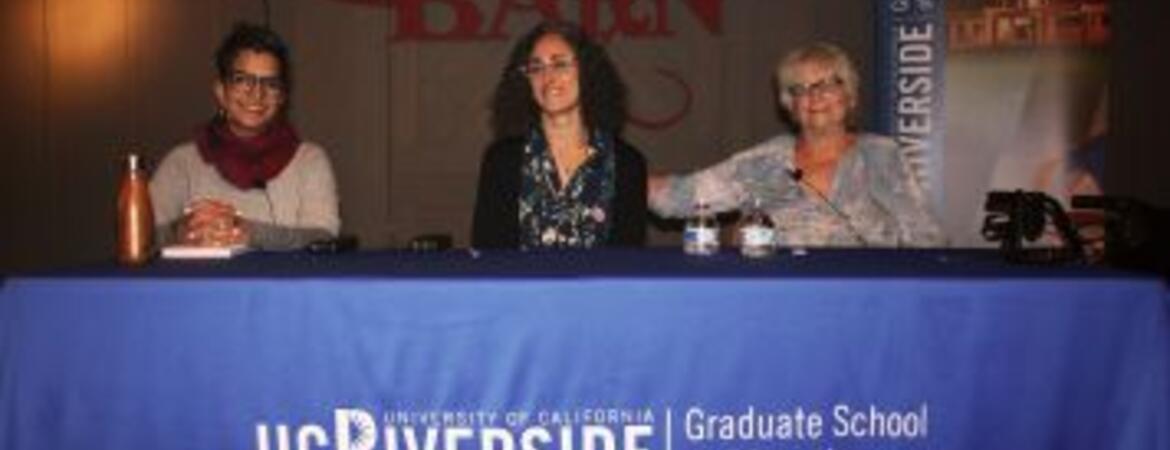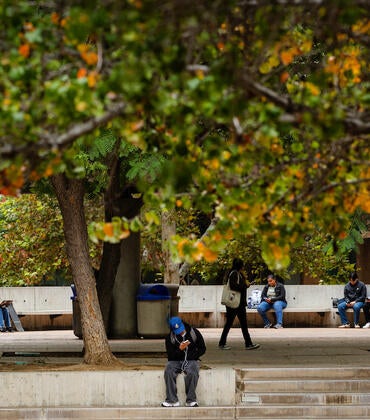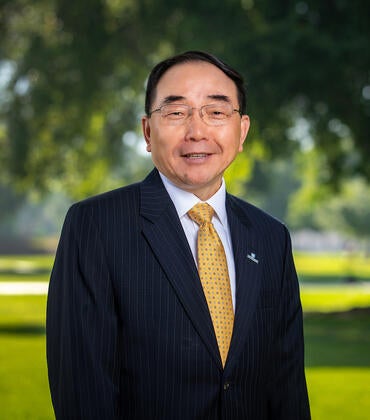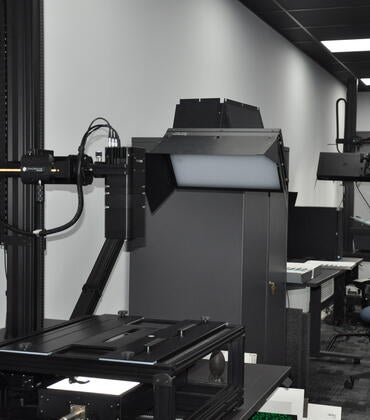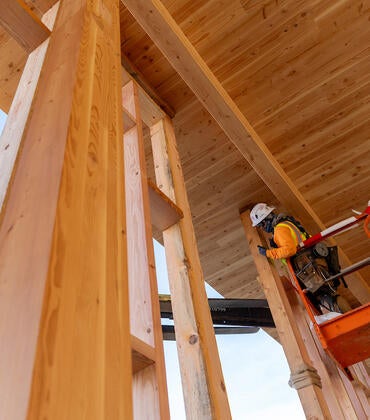How can we make our schools more democratic?
That was the question posed during the first installment of the UCR Graduate School of Education’s 2018 Dean’s Distinguished Lecture series.
Held the evening of Wednesday, Feb. 21, the event spotlighted the work of two longtime educators and advocates of education reform, Deborah Meier and Emily Gasoi, who visited The Barn on UCR’s campus for a forum-style discussion moderated by GSOE Professor Leigh Patel.
Meier and Gasoi spoke to a crowd of more than 120 students, faculty, and community members about the roles of schools in democratic societies and how schools can better serve as training grounds for new generations of civically engaged citizens. Following the discussion, they fielded questions from the audience and signed copies of their co-authored book, “These Schools Belong to You and Me: Why We Can’t Afford to Abandon Our Public Schools” (2017).
Examining the evolution of American education through the lens of the past several decades, Meier and Gasoi described the late 1980s as a sort of sea change that saw the concept of democracy become “fashionably conflated with free-market capitalism.” Coinciding with the change, they noted, schools began to embrace a system of high-stakes standardized testing that serves to quantify students’ learning, condensing it into little more than data sets and algorithms.
“I started off as a great enthusiast of standardized testing because I knew I was good at it,” Meier acknowledged, detailing her experience growing up in the 1930s before beginning her career as a substitute teacher on Chicago’s South Side and helping revitalize several schools in New York’s East Harlem neighborhood. But, she added, “quantification via standardized testing was mostly an attempt to make education more similar to the business world.”
What got lost in the process was a crucial commitment to teaching children how to be democratically engaged — knowledge that can’t necessarily be quantified but nonetheless remains vital to our country’s longevity.
Building on the concept of democratic engagement, the co-authors considered the question of whether America has ever truly been a democracy in which all voices are equally weighted. Meier contended that while this might not be the case, it’s never too late for schools to pave the way for such a reality.
“We’re not all born democrats, but we are born with the capacity to solve the problem of democracy,” she said. “Likewise, there’s the potential in every child to be an intellectual.”
So, what is it about schools that needs to change to help kids reach their democratic potential? According to Gasoi, there are a few key improvements that would pay dividends for years to come: Class and school sizes could be made smaller, and standardized testing could be swapped out for something more akin to a doctoral exam. The new format would give students the opportunity to present their work to panels of people they respect, and to respond to those panel members’ on-the-spot critiques of said work.
Overall, Gasoi continued, for the situation to improve, adults will need to come together to “take ownership” over their children’s schools by becoming more involved with decision-making processes and other community-building activities. To illustrate these points, Gasoi used the example of Boston’s Mission Hill School, a public, small-learning environment for elementary and junior high schoolers that was founded by Meier in 1997 and is now democratically co-run by a principal, governing board, and family council.
“We have to redefine the concept of democracy,” Meier chimed in. “Some people say to me, ‘Well, you already elect the officials who decide school policy, whether they’re federal or state or local.’ But is that truly democratic? To experience democracy only every four years with a vote? It’s going to require a rethinking of what our citizenry culture should be.”
A lofty goal, to be sure, but a worthwhile one, she added, since “the greatest gift we can give our children is to belong to a powerful community that they feel respected by.”
